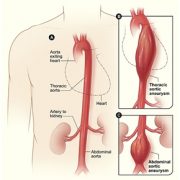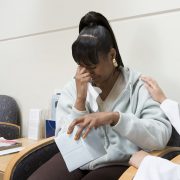Posts Tagged ‘Patient Care’
The Importance of Effective Communication in Healthcare

By using tools and techniques such as SBAR and making changes to hospital communication culture providers can improve communication skills to deliver safer and better patient care.
Read moreHow to Prevent and Resolve Difficult Patient Encounters

Having difficult patient encounters is often part of the job when you work in healthcare. Whether it’s helping a grieving family member or defusing an angry patient, your finesse in dealing with these challenging encounters makes a difference in the lives of the people you care for.
Read moreIs it Time To Laugh Yet? Funny Patient Moments to Lighten Your Day

Let’s be honest. Working in healthcare can be super stressful. The funny things our patients say and do give us a much needed break from the hectic, the serious, and the mundane parts of our work. Laughter is so good for us, and for our patients, too. Here are some of my personal favorite patient memories.
Read moreHow Emerging Technologies Are Shaping the Future of Healthcare

Imagine a world where complex health issues can be solved or prevented with relative ease. As lifespan increases, technology innovators race to outpace the growing demands of the planet’s expanding population. Medical technology companies create faster, more, and less expensive answers to patient care needs. Engineering and science have converged, making medical practice easier for physicians, more effective for patients, and less costly to the system struggling to hold it all up…
Read moreDealing with Bad Patient Outcomes

Working in a high-liability specialty for the past nine years, I have received the news of bad outcomes several times. It never gets easier—and frankly I think that if it does, it’s a good sign that I should probably quit clinical medicine.
Below is the process I go through and a few tips I wish I knew earlier on…
A Question of Centimeters – Navigating the Tricky Waters of Surveillance and Watchful Waiting

How long do you wait for a centimeter?
In this case, we waited just 6 months. Not because of conflicting abdominal aortic aneurysm data, but to assuage a woman’s very reasonable fears. And to make sure she could get the imaging study done at a feasible cost — and because of broken water pumps and rabbit pies.
Read moreFour Reasons Your Medical Practice Should Embrace CAM

Complementary and Alternative Medicine (CAM) refers to any therapy that is not a part of standard Western medicine. Despite increasing interest from patients – up to a third of Americans use some form of CAM – western medicine has historically vilified these practices as not evidenced based and without much merit. Despite this, many CAM practices are beneficial to patients and can safely be integrated into your medical practice.
Read on to see why your practice should start incorporating CAM…
Read more6 Best Practices for Building Patient Loyalty

Consumers today have high expectations when it comes to service. Companies such as Amazon, Netflix, and Google have thrived on providing consumers what they want, when they want it. As a result, we are living in an “on-demand” era that has increasingly infiltrated almost every industry, with healthcare being no exception. One may argue that medicine is hardly the same as ordering a video or a new set of bath towels online. However, the reality is that patients are consumers and they are living in an “on-demand” world. To gain their business and win their loyalty, healthcare organizations and practices must recognize this shift and implement strategies to improve access, convenience, and personalization.
The following are six best practices for building and maintaining patient loyalty…
Read moreLevity in Medicine

Is Medicine Fun? Does That Make It Funny?
Roller coasters are fun. Playing sports is fun. Neither is really funny. Like a roller coaster, the practice of medicine can be thrilling and unpredictable, rough or smooth. Like playing sports, to do it well, you have to know what you’re doing—be good at it.
Read moreTherapeutic Presence

Research shows that attitude and communication skills of the person delivering the bad news are important in determining the nature of a family’s grieving process, and in their ability to cope and recover.
Read more